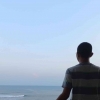Introduction
The COVID-19 pandemic, which has been going on for approximately three years, has caused a downturn in the world economy and resulted in extraordinary disruption. As the world tries to recover from this health crisis, governments and international institutions are trying to develop economic recovery strategies. In this article, I will conduct an analysis of the world's economic recovery after COVID-19 through the theories of international relations that I have studied, as well as examine how the various views of each theory of international relations can provide knowledge about the movement in recovery and the role of international cooperation in shaping this process. And in this article, I will analyse how countries have made economic recovery after COVID-19 from the point of view of international relations theory.
Discussion
Realism
The theory of realism is a theory in international relations that explains that countries carry out economic recovery because they are driven by national interests, including economic interests. In the aftermath of the pandemic, we can see how countries have prioritised their own economic recovery, often by implementing protectionist measures, imposing trade restrictions, and stockpiling essential resources. These actions reflect countries' tendency to protect their domestic economies and prioritise domestic concerns over international cooperation. As we can see in the country of Indonesia, which after the pandemic began to carry out economic recovery through the tourism sector, with the opening and return of foreign tourists visiting Indonesia, there are indeed very significant changes in the economic sector itself. Communities whose areas are used as tourist attractions can feel the direct impact of this. Apart from Indonesia, Qatar also contributed to economic recovery through its tourism sector by holding the 2022 World Cup in Doha, so that at that time Qatar's economy immediately skyrocketed.
Liberalism
The theory of liberalism is more focused on opportunities for cooperation and collective action among countries that can be taken to help restore the economy. This pandemic has demonstrated the importance of multilateral institutions such as the World Health Organisation (WHO) and the International Monetary Fund (IMF), which have a critical role to play in organising the response and providing financial assistance to countries experiencing economic difficulties. As well as being very helpful in terms of economic recovery, international cooperation is also very important in ensuring and providing access to vaccines, medical supplies, and other resources needed for economic recovery. In this theory, we can see that during the previous pandemic, Indonesia bought and obtained a large supply of vaccines of various types from various countries. Then, for economic recovery after the pandemic through international cooperation, Indonesia hosted the G20 event in 2022 and, in 2023, will become chairman of Asean.
Dependency Theory
The dependency theory states that some countries and regions become economically dependent on other countries, causing global economic inequality. This pandemic has highlighted this disparity, as developing countries face greater challenges in recovery due to limited access to health resources and infrastructure. The ability of rich countries to provide substantial fiscal leverage and access to vaccines further exacerbates the disparity between countries in the global North and South. As previously stated by the WHO, rich countries such as America have purchased almost all of the available vaccines, while developing countries such as Africa, Nigeria, the Congo, and others are still in dire need of vaccine stocks.
Conclusion
Post-COVID-19, world economic recovery has been a very complicated process, influenced by various theories in international relations in various aspects. The advantages of realists for self-interest can be proven through measures that must be protected, while international cooperation in liberal theory provides responses from various parties and financial assistance. Dependency theory also emphasises the uneven recovery experiences of different countries. With the occurrence of COVID-19, it has also caused disruption in several other sectors besides the economy, namely education and tourism, which have also greatly impacted and caused many changes to the post-COVID-19 system. This raises awareness for the international community to continue to prioritise international cooperation or diplomacy, as suggested by the theory of liberalism. At the stage of economic recovery, generally each country will begin to focus on its own country to repair damage, disrupt, or catch up with other countries, so they will also try to establish international cooperation to help restore their country. Economic recovery must be carried out first compared to other sectors because the economy itself is the main axis for the movement of a country, so they must improve the economy first before they can improve the lagging sectors.
Artikel ini sebagai salah satu syarat Tugas II Mata Kuliah Teori Hubungan Internasional dengan Dosen Pengampu: Fadlan Muzakki, S IP., M.Phil., LLM.











